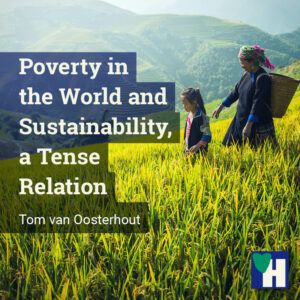
Poverty in the world and sustainability are not on par. Sustainability plans are usually designed to manage the long-term environmental impacts of human activities. What we tend to forget is that these plans can have devastating effects on world poverty.
Economic growth, financial stability, and jobs are often believed to be essential to sustainability plans. These plans are usually aligned with the protection of ecosystems, biodiversity, and water resources on which the poorest of the world depend.
Climate change, energy insecurity, freshwater scarcity, deteriorating ecosystems, and biodiversity, already have a detrimental impact on the poorest of the world. Sustainability plans primarily and predominantly protect those who are well off.
Related: Protect the Endangered Species of the World
Some of the links are affiliate links. As an affiliate associate, we earn a commission when you purchase any of the products offered through the shared links at no extra cost for you. This helps us maintain this website.
Table of contents
Whose planet and whose profit?
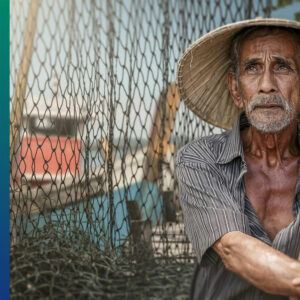
Of course, sustainability plans are not designed to frustrate their own outcomes. The ambitions on which these plans are designed are supposed to balance people, planet, and profit. The question is however whose planet and whose profit.
On a global scale sustainability plans are far too ambitious. As a result, most of the sustainability plans are country-based, if not regional. In practice, most of the countries designing these plans are developed countries. They have the money and the administrative capacity to design and implement them.
Every sustainability plan starts with a description of the current state of the balance between people, planet, and profit. This description is the starting point for an endless debate about the ambitions, which are aimed at sustaining or changing this balance. However, these plans never aim at relieving poverty in the world.
Devastating impact
Sustainability plans, which do not incorporate the relief of poverty in the world, have a devastating impact on the poor. This can best be illustrated with some practical examples. The first example takes the oil price on the world market as a reference. Water scarcity is the second example. And the control of carbon dioxide emissions, one of the causes of global warming, is the third example.
Energy and poverty
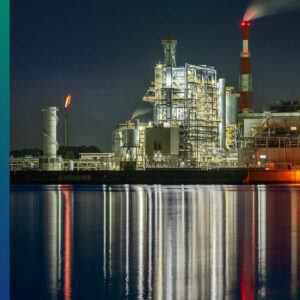
The core of every sustainability policy plan is supposed to be the energy balance. A ship with oranges from Florida, USA, to Rotterdam in The Netherlands, EU, is far more sustainable than trucks moving the same amount of oranges from Valencia in Spain, EU, to Rotterdam.
Oil prices have a huge impact on the energy balance. The USA and the EU usually are very well capable of handling fluctuating oil prices. These are the rich regions. Nevertheless, fluctuating oil prices can have a severe impact on the global economy.
But the impact is always heaviest on the poor. In 2008, the oil price rose to 180 dollars a barrel. As a result between an extra 130 and 150 million people were driven into poverty worldwide. Moreover, 2.4 billion people must be designated as ‘energy poor’. They rely on wood, or another type of biomass such as manure, for cooking and heating, and 1.6 billion of them have no access to electricity.
Water and poverty
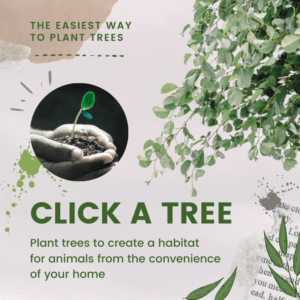
The infinite loss of ecosystems is specifically hard on the poorest of the world. Almost 20% of the world’s population depends on the most fragile ecosystems. Forests, such as the Amazon rainforest, swamps, mountainous areas, and deserts are more and more depleted of water resources.
Some 600 million poor people are directly affected because they live in rural areas. Another 600 million poor people live in urban areas without any access to clean water services. They are not able to pay for those services. Moreover, almost 3 billion people have no access to basic sanitation services.
Carbon dioxide emissions and poverty
In countries such as China and the United States, and the European Union sustainability plans are designed with substantial and ambitious time frames. These are all aimed at reducing carbon dioxide emissions to help counter climate change.
These countries are all high-income and large economies. For these types of economies the improvement of the efficiency of energy systems, the conservation of fossil fuels, and the development of alternative energy sources boost the profits of companies. These improvements also create financial stability and jobs.
There are several problems with these sustainability plans though because they increase poverty in the world:
- These plans include the removal of subsidies and tax breaks for fossil fuels, fueling the rise of fossil fuel prices, primarily affecting the poor;
- They also require enormous investments, which create unfair competition because developing countries will never be able to make them;
- And these plans create so-called poverty spills, meaning that all old and not so energy-efficient systems will be sold to poor countries, increasing their dependence on fossil fuels.
Poverty in the world ignored
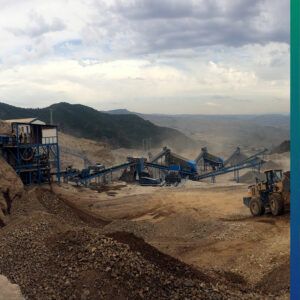
The core of sustainability plans consists of various types of improvement. Some of them are already mentioned, such as more efficient energy and water management, and a decrease in carbon dioxide emissions. Sometimes, the plans also aim at alleviating the problems of the poor ‘at the same time’.
These four words, ‘at the same time’, are the most shameful expression of the self-centered ideas that dominate sustainability ideas in rich countries. These words deny the irrefutable link between ecosystems and the living conditions of the poorest people on the planet.
Rich countries already depleted all ecosystems, and now try to deplete some more with their sustainability policy plans. Rare metals are a notorious example, e.g. lithium and cobalt, used in batteries for laptops, mobile telephones, and electric vehicles. Mining these metals, every sustainability ambition, and every human right is ignored.
For the next 2 or 3 decades, all ethics are forgotten when it comes to reaching the greenhouse gas emission levels of rich countries. And yes, these mining practices violate many ecosystems, most significantly those which are vital to the poor.
Sustainability plans must first alleviate poverty in the world

In low-income economies, the economies poor people depend upon, almost 80% of the population is engaged in agricultural or resource-based activities. This means that worldwide some 3 billion – predominantly poor – people depend on the exploitation of natural resources.
Only very rarely these poor people reap the profits others make from the resources they depend upon. As a consequence, every sustainability plan, no matter whether they are designed by governments or companies, must aim at alleviating poverty in the world. This requires that:
- All institutional sustainability plans (financial, rules and legislation, decision making, management, organizational) protect and support the natural resources on which poor people depend;
- The profits involved with the use of these natural resources by others than those who depend on them are primarily taxed in the countries where the poorest live, and these profits are primarily re-invested in industrial activities, infrastructure, health services, and education in the countries of the poorest;
- The vulnerable environments in which the poorest live are only touched upon by others provided all natural resources used, and possible damage done to them, is restored – if need be retroactive – and the lives of the poor are verifiably improved.
These requirements imply that poverty is not reduced due to direct investments in the improvement of ecosystems or biodiversity. Poverty in the world can only be reduced when the lives of the poorest are improved by ending the exploitation of the ecosystems they live in. This is a highly delicate operation in which the poor contribute a major effort.
What are your ideas about alleviating poverty in the world? Tell us in the comment box below.

Hi Tom. Thank you for a very important article. It’s often forgotten that we can’t think about sustainability without helping poor societies first. Someone who is not able to feed his family won’t be thinking about ecological aspect of his actions. And this is the responsibility of rich countries to share their resources and to take costs of this transformation themselves. Poor regions were exploited by Western societies for years and now its time to pay the dept.
Hi Cogito,
I totally agree, it’s time we pay our debts for what we stole from the poor.
From the Panama Papers case, I learned that when all the multinationals, which operated in Africa during the past 40 years, would have paid the taxes they were due, instead of illegally skimming the profits they made in these countries to tax havens, none of the African countries would be in debt right now. These countries would all be rich, and be able to flourish and prosper like any of the countries in which these multinationals reside or sell their products to.
We must try to keep reminding each other how shameful these multinationals operate. To be precise, nowadays these multinationals also originate from superpowers such as China and Russia. There are no ideological differences anymore, they’re all as malicious.
Thank you for your comment.
For now, stay safe, stay healthy.
Regards,
Tom
This is sad. Thank you for this thorough post. I understand that more than 700 million people, or 10% of the world’s population, still live in extreme poverty today, struggling to meet the most basic needs, such as health, education, and access to water and sanitation, to name a few.
And incorporating the effects of the COVID-19 pandemic, it is estimated that it will push between 88 million and 115 million more people into extreme poverty, bringing the total to between 703 million and 729 million. How terrible!
Hi Ann,
You are right, it is sad. It is also a highly complicated issue. The greening of the planet can’t wait. However, as long as we do not put the battle against poverty at the frontline of this greening, the greening will never emerge.
You’re correct, between 700 and 800 million people live in extreme poverty. Unfortunately, some 3 billion people do not have many of the basic needs you refer to. The greening problems are a lot bigger as always has been assumed.
The current pandemic is a sad, and clear example of the problems sustainability plans face. The way the pandemic is tackled only multiplies the problems these plans are supposed to counter. More people relapse into poverty, less money is available for the transition to a more sustainable way of living, and as a cherry on the pie, everybody wants to return to our unsustainable way of living as soon as possible.
For now, this is what we have to deal with. More and more politicians, company managers, and citizens move away from the ambition of a better world. It is up to us, to make serious and tough personal choices. Are you up to it?
Thank you for your comment. Stay safe, stay healthy.
Regards,
Tom
Something to think about. This presents quite a conundrum, going sustainable and damaging poor countries in the process or not going sustainable, destroying the world and keep on exploiting poor countries? Sustainability is important, but we can’t hurt others in the process. I think that another important question is not only what our governments can do but what we as individuals can do, and that’s where the problem begins. Everyone wants to change the world, but as soon as action taking is expected from each individual people mumble excuses such as “no time”, “too expensive” “can’t miss my bacon and steaks” and bla bla bla. One major truth that is also guilty of the poorer state of many developing countries (and which most individuals prefer to ignore) is the western (meaty and dairy) food system in the first world, but that’s another discussion.
Hi Christine,
You’re right, this is one of the biggest paradoxes we face at the moment. And you’re also right about the totalitarianism of the meat and dairy food production and consumption conglomerate.
The destructive powers of this conglomerate have once again been demonstrated during last week’s negotiations about the Common Agricultural Policy (CAP) of the European Union. The farmers don’t want to give in, the industry doesn’t want to give in, the consumers don’t want to give in, the politicians don’t want to give in …
To illustrate the fierce, and often scruples, opposition against a greener agricultural policy, I will quote the Dutch prime minister: “We have to do something because when we start rising the costs for the broad European middle class, the support will disappear.”
Implicitly, he says that the broad European middle class is not prepared to pay more money for the food they now buy. Whereas their food has never ever been as cheap as at this moment. The price of cheap food is paid by the poorest people on the planet. With such political ‘heroes’ as the Dutch prime minister, poverty will increase more and more, from the current, already totally unsustainable level.
Yes we can do something, and we must, and we will. Thank you for your comment.
For now, stay safe, stay healthy.
Regards,
Tom
Hi Hannie,
This is a very, very important article and one that touches me. I do give to charity quite a lot, but I feel that I can do more. This is not an excuse, but since the pandemic, it has become restricted on what we can do for the poverty of this world. I know a lot of friends who lost their jobs and have become really skint because of it. I have helped where I can, but I want to be able to do more.
It’s good that restrictions are being lifted every so often, so there will be more opportunities to help others. I am definitely going to take advantage of that.
Thank you for sharing and keep up the amazing work.
All the best,
Tom
Hi Tom,
Thank you for your comment, and compliments. This is what we do all the work for, that it touches people. We’re very grateful when this happens. Thank you for sharing this with us.
I compliment you for the good work you already do. Giving to charity is important. Helping your friends in need is important. Changing your behavior to a more sustainable variant is important.
Let’s use this time of restrictions to reflect on what we might be able to do more. As well during the restrictions, as when they’re lifted. How can we prevent we revert back to ‘the old normal’?
Stop frequent flying. Stop eating meat 7 days a week, 3 meals a day. Stop using your car to drive 500 meters and back. Stop eating dairy. Stop using plastic.
Invest in organic food. Invest in neighbor support. Invest in durable and recyclable goods. Invest in green energy.
For starters, this should be enough. Please share this plan with others.
For now, stay safe, stay healthy.
Regards,
Tom (also on behalf of Hannie)
We are definitely getting poorer by the years because of how we treat the earth and in some years things are going to get worse if we don’t change the way we do things. People in the rural area suffer the most because this affects them directly which I think isn’t fair. The amount of carbon dioxide some countries release into the atmosphere and the toxic substances spilled into the waterbodies people drink from is really saddening and this is definitely not a good thing.
I ask myself do these industries have a conscious because this is really affecting in ways we are seeing and in other ways we aren’t.
Thank you for this important article and I hope a lot more others get to read this.
Hi Femi,
Sorry for the delay in my response, but our provider let us down. Now it is fixed, we can go back to work again.
A part of the problem with sustainability and poverty, or the destruction of biodiversity and ecosystems, is that we use words that masquerade what is actually happening. Often without us being aware.
Take your words, for example, you talk about ‘we’, countries, and industries. However, who are those ‘we’? Who in those countries releases all the carbon dioxide? And why? Who represents these industries? Who are the people that work in these industries?
More important: who are the people who are able to make a change? Will they please present themselves and tell us what they are going to do about all the misery they are causing? The day this will happen, will be an interesting day.
Thank you for your comment and your compliments.
For now, stay safe, stay healthy.
Regards,
Tom
I do my best to buy only what I need, to properly recycle and to use sustainable options whenever available. On a bigger scale we need bolder well-thought out strategies catered to the particularities of every country.
Hi Miranda,
Thank you for your comment. You’re right, we need bolder well-thought-out strategies on a bigger scale.
I have, however, a couple of issues with such strategies. First: who is going to provide these strategies to the ‘we’ who need them? Perhaps it’s best we provide our own strategies?
Which makes it interesting to discuss the how of this provision. Which is my second issue.
Third: poverty and a sustainable world know no borders. So, cracking the border issue is a priority on my strategy list. In which case it is not enough to argue that borders are no good, and nationalism is a major contributor to poverty. As I often do. To crack borders, more is required.
Again thank you for your comment. Stay safe, stay healthy.
Regard,
Tom